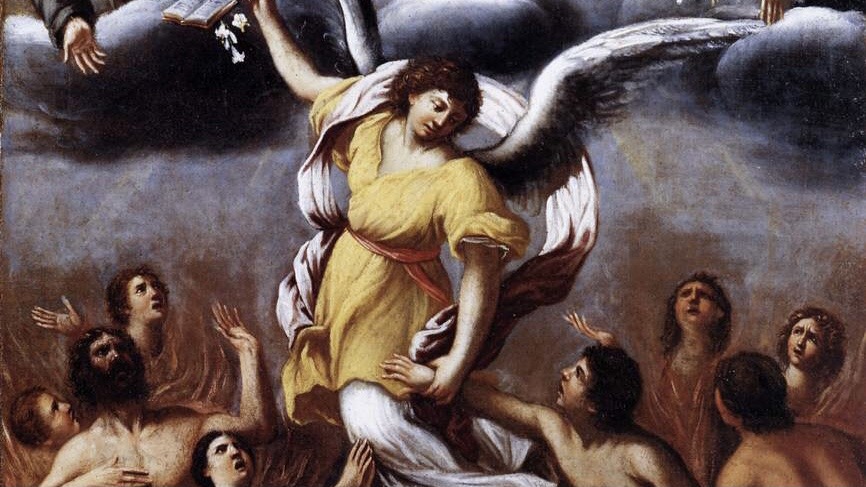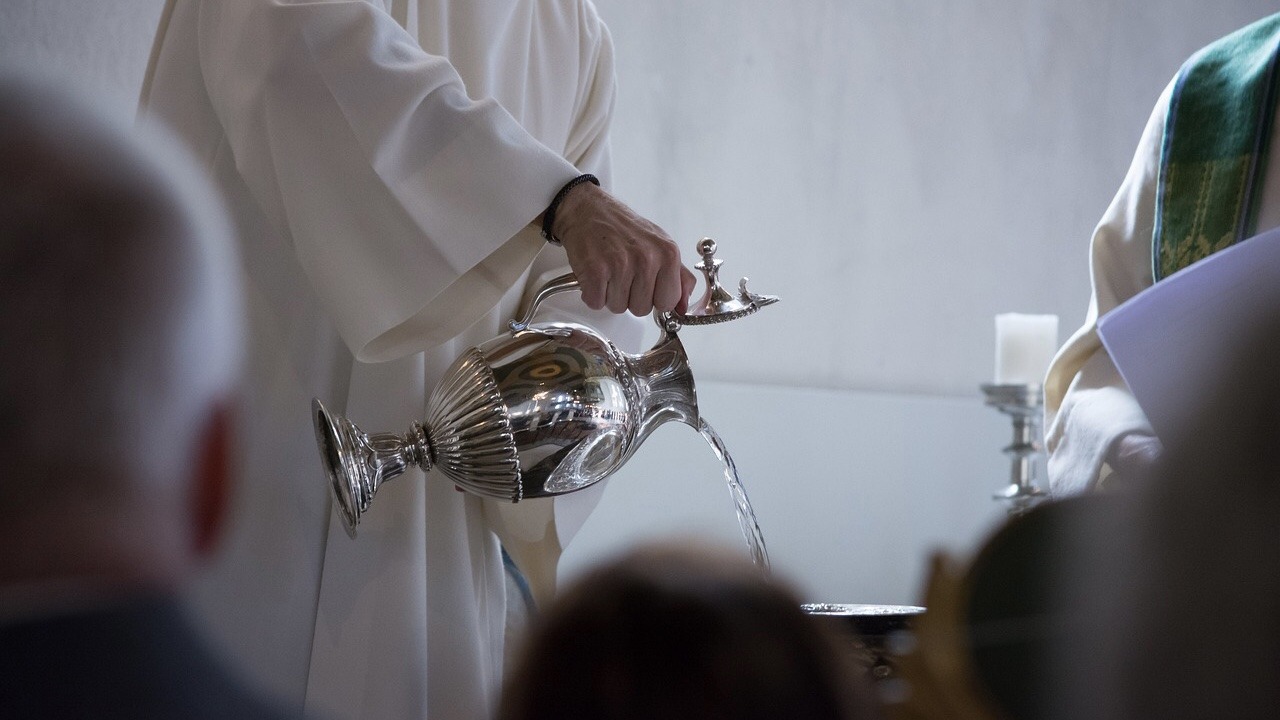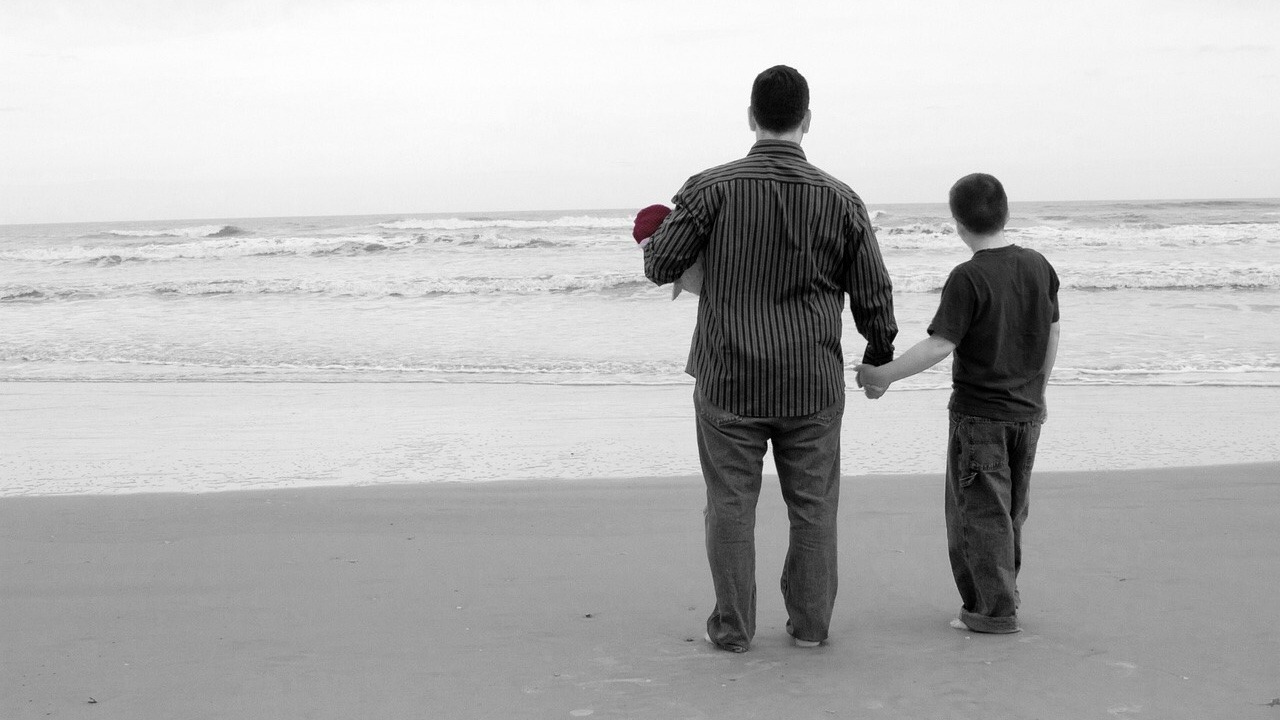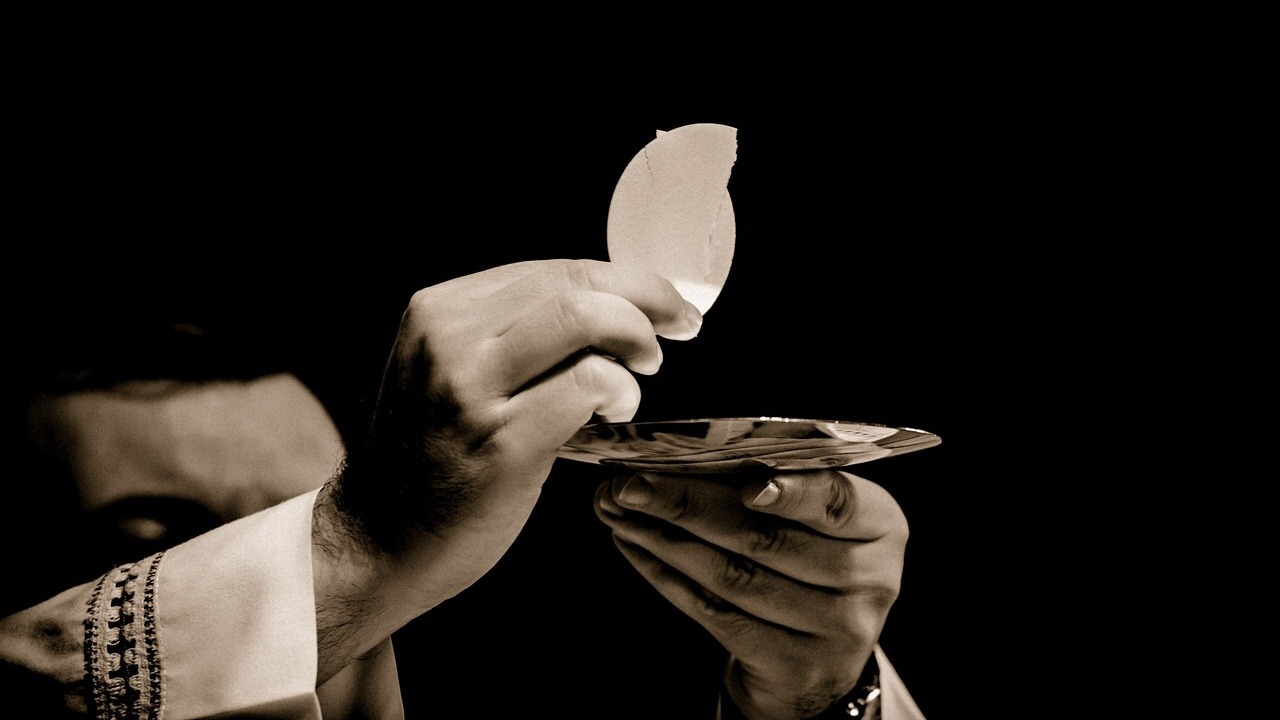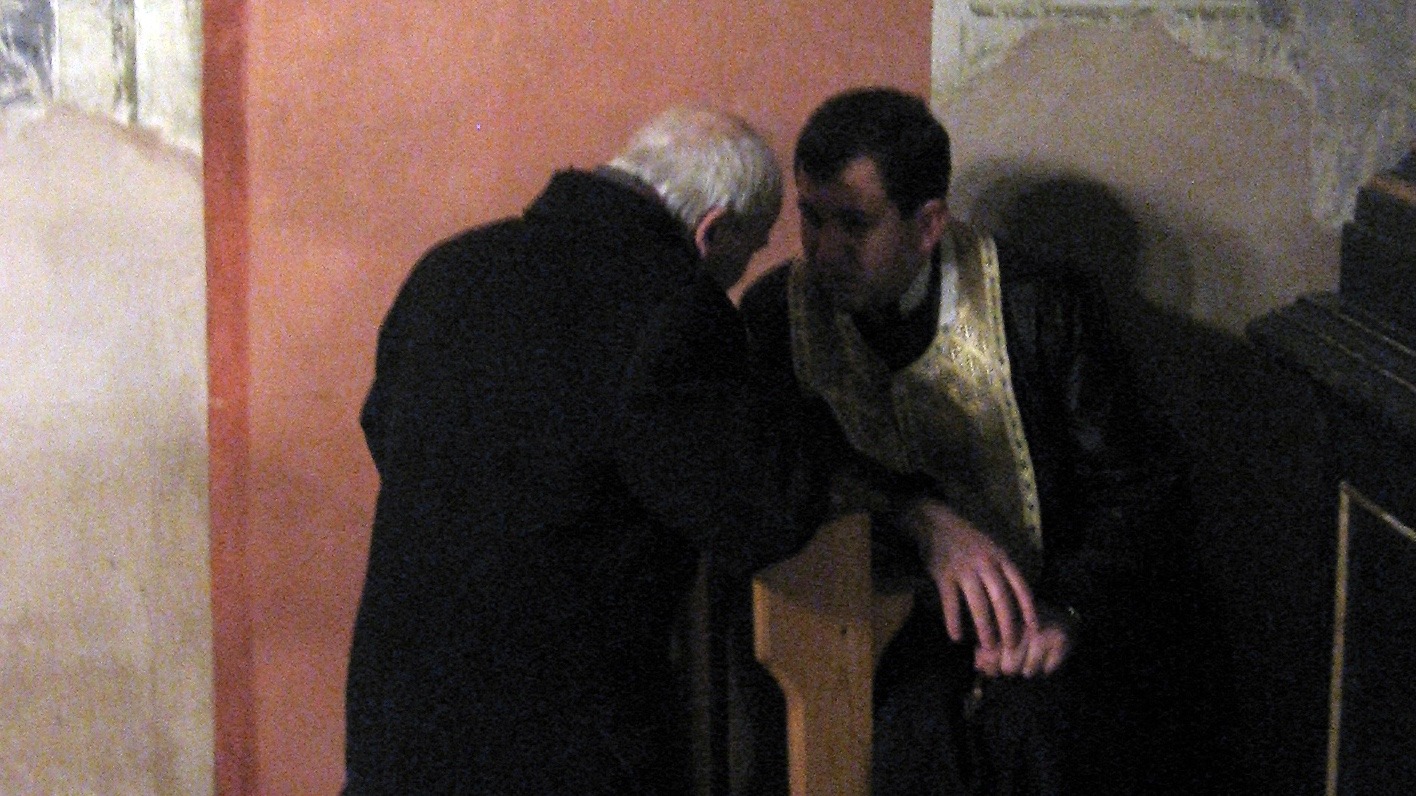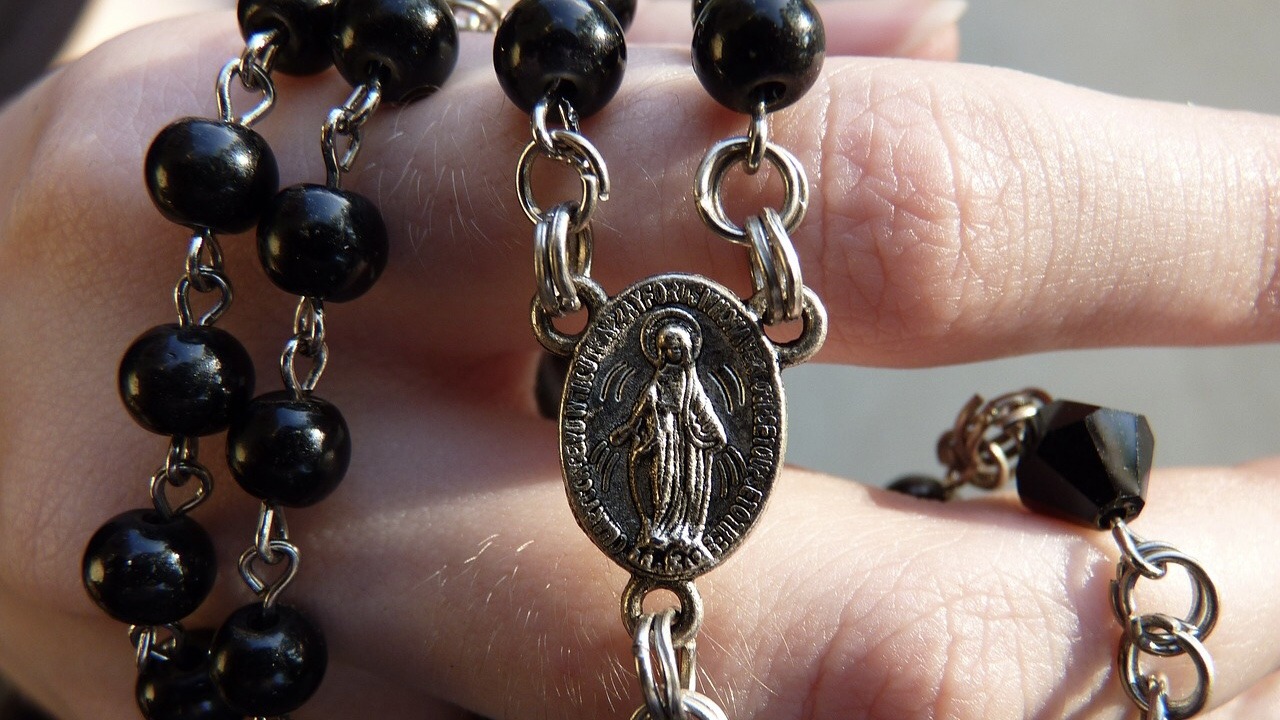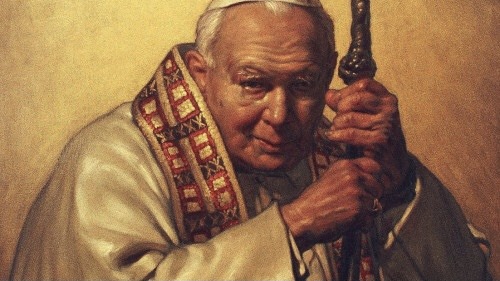 Steve “Purple” Hays asks the question at Failablogue. (He calls it Triablogue, for optimistic reasons known to him alone.) I am happy to answer Mr. Hays’ question, which he puts like this: “Hypothetically, what would the magisterium have to do for devout Catholics (or Catholic apologists) to conclude that the Roman Catholic church never was the one true church founded by Jesus Christ? Can the magisterium ever do anything, in principle or practice, to discredit Roman Catholicism? … What’s the standard of fidelity?” In fact, there is.
Steve “Purple” Hays asks the question at Failablogue. (He calls it Triablogue, for optimistic reasons known to him alone.) I am happy to answer Mr. Hays’ question, which he puts like this: “Hypothetically, what would the magisterium have to do for devout Catholics (or Catholic apologists) to conclude that the Roman Catholic church never was the one true church founded by Jesus Christ? Can the magisterium ever do anything, in principle or practice, to discredit Roman Catholicism? … What’s the standard of fidelity?” In fact, there is.
Protestant asks: When would Catholics know they’re in a false Church?
BY: Henry Matthew Alt • August 5, 2019 • Apologetics
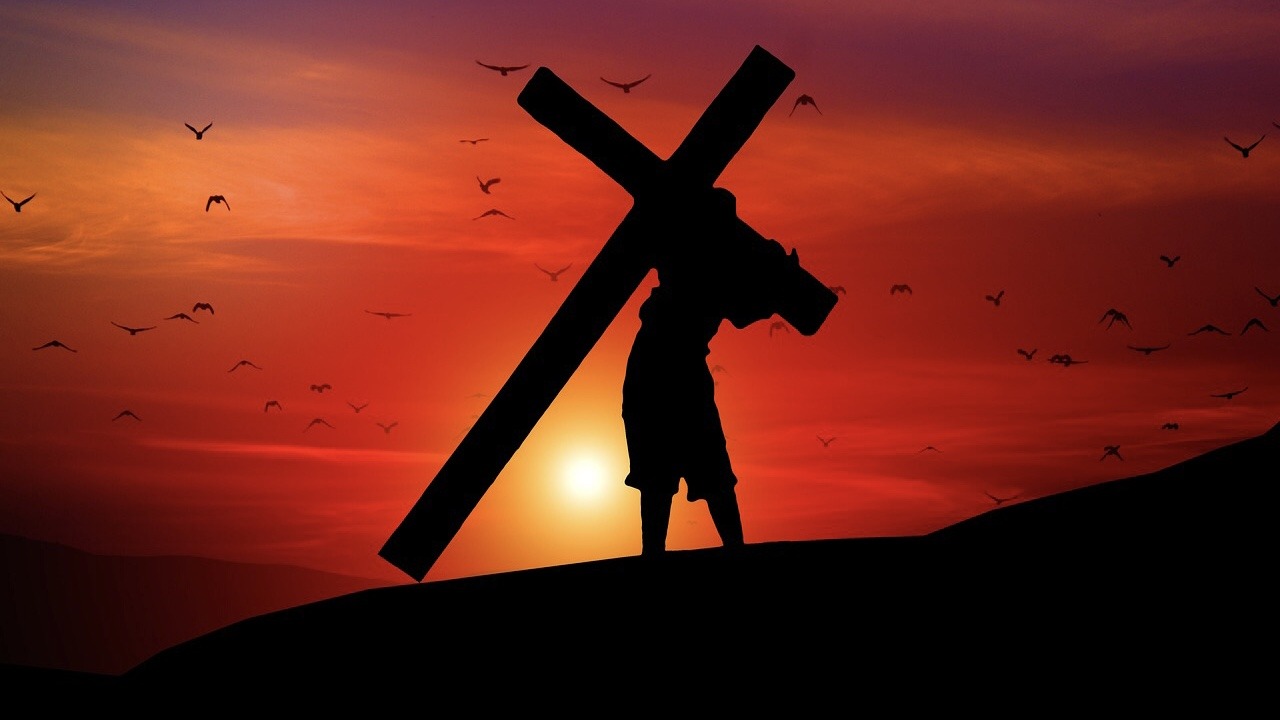 “It will not do,” John Calvin cries, “to say that the only ground on which we obtain forgiveness of sins is in the mass, because it has been already purchased by the death of Christ.” Protestants love false dichotomies: The Mass or the death of Christ; as though they are different. But no. The Mass is the death of Christ. It is not, as I pointed out in the last segment, a new death of Christ, but the same sacrifice done in obedience to Luke 22:19. (Do this is sacrificial language; the Mass is not a bare commemoration.) But Calvin, being Calvin, will have none of that.
“It will not do,” John Calvin cries, “to say that the only ground on which we obtain forgiveness of sins is in the mass, because it has been already purchased by the death of Christ.” Protestants love false dichotomies: The Mass or the death of Christ; as though they are different. But no. The Mass is the death of Christ. It is not, as I pointed out in the last segment, a new death of Christ, but the same sacrifice done in obedience to Luke 22:19. (Do this is sacrificial language; the Mass is not a bare commemoration.) But Calvin, being Calvin, will have none of that. 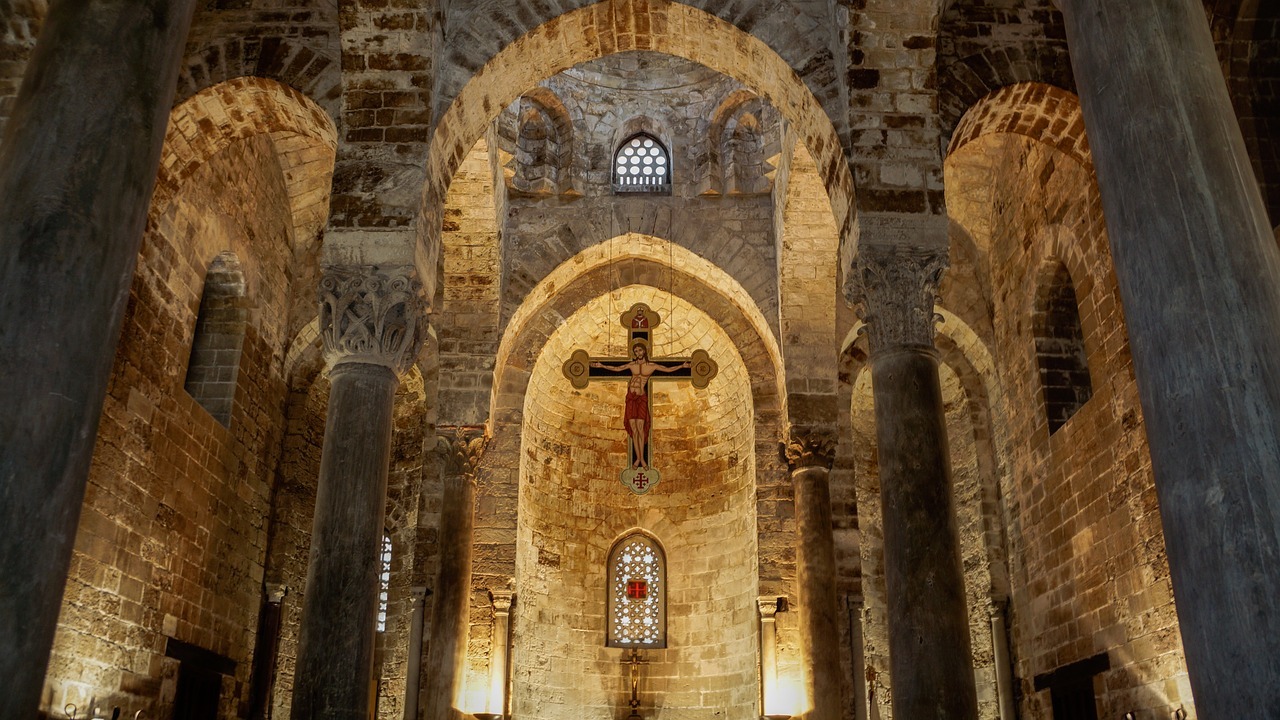 Very early in this chapter, John Calvin is already making claims that are painfully easy to disprove. He has grown desperate. “What is the direct aim of the mass,” he cries, “but just to put Christ again to death, if that were possible?” I’m glad he admits it’s not possible. That’s a first. Just before this, Calvin claimed that the Mass “overthrows the cross of Christ,” but nowhere says that that’s not possible. Though he seasons it with caution, Calvin grows more wreckless in his charges. You’d think we were processing Christ down the aisle in thorns.
Very early in this chapter, John Calvin is already making claims that are painfully easy to disprove. He has grown desperate. “What is the direct aim of the mass,” he cries, “but just to put Christ again to death, if that were possible?” I’m glad he admits it’s not possible. That’s a first. Just before this, Calvin claimed that the Mass “overthrows the cross of Christ,” but nowhere says that that’s not possible. Though he seasons it with caution, Calvin grows more wreckless in his charges. You’d think we were processing Christ down the aisle in thorns. Too many people imagine that infallibility means nothing in the Church can change. They treat Church teachings or traditions as though they are museum pieces and must be kept in protective glass. It is not thus. The Church may grow in its understanding even of its infallible teachings, such as the Eucharist being the body and blood of Jesus Christ. So when change occurs before our eyes, there are those who panic and speak of crisis. But infallibility is not meant to force the Magisterium into an old wineskin. This is why the Magisterium is living.
Too many people imagine that infallibility means nothing in the Church can change. They treat Church teachings or traditions as though they are museum pieces and must be kept in protective glass. It is not thus. The Church may grow in its understanding even of its infallible teachings, such as the Eucharist being the body and blood of Jesus Christ. So when change occurs before our eyes, there are those who panic and speak of crisis. But infallibility is not meant to force the Magisterium into an old wineskin. This is why the Magisterium is living. 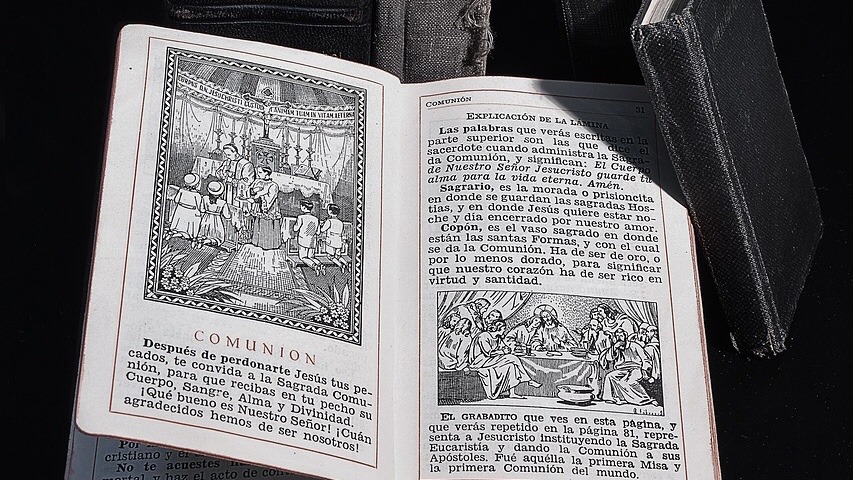 Calvin made wild claims; but he got people to believe them, even today, which is wilder. This one – the Mass banishes the remembrance of Christ’s death! — is easily disproven for anyone who bothers to read the text of the liturgy. (Or even: for anyone who walks into a Catholic church and bothers to look at the crucifix or the Stations of the Cross.) Perhaps people are lazy and just take deceivers like Calvin at their word; I don’t know. But there’s a funny little part of the Mass called the Words of Institution, at least as old as St. Cyril of Jerusalem.
Calvin made wild claims; but he got people to believe them, even today, which is wilder. This one – the Mass banishes the remembrance of Christ’s death! — is easily disproven for anyone who bothers to read the text of the liturgy. (Or even: for anyone who walks into a Catholic church and bothers to look at the crucifix or the Stations of the Cross.) Perhaps people are lazy and just take deceivers like Calvin at their word; I don’t know. But there’s a funny little part of the Mass called the Words of Institution, at least as old as St. Cyril of Jerusalem. 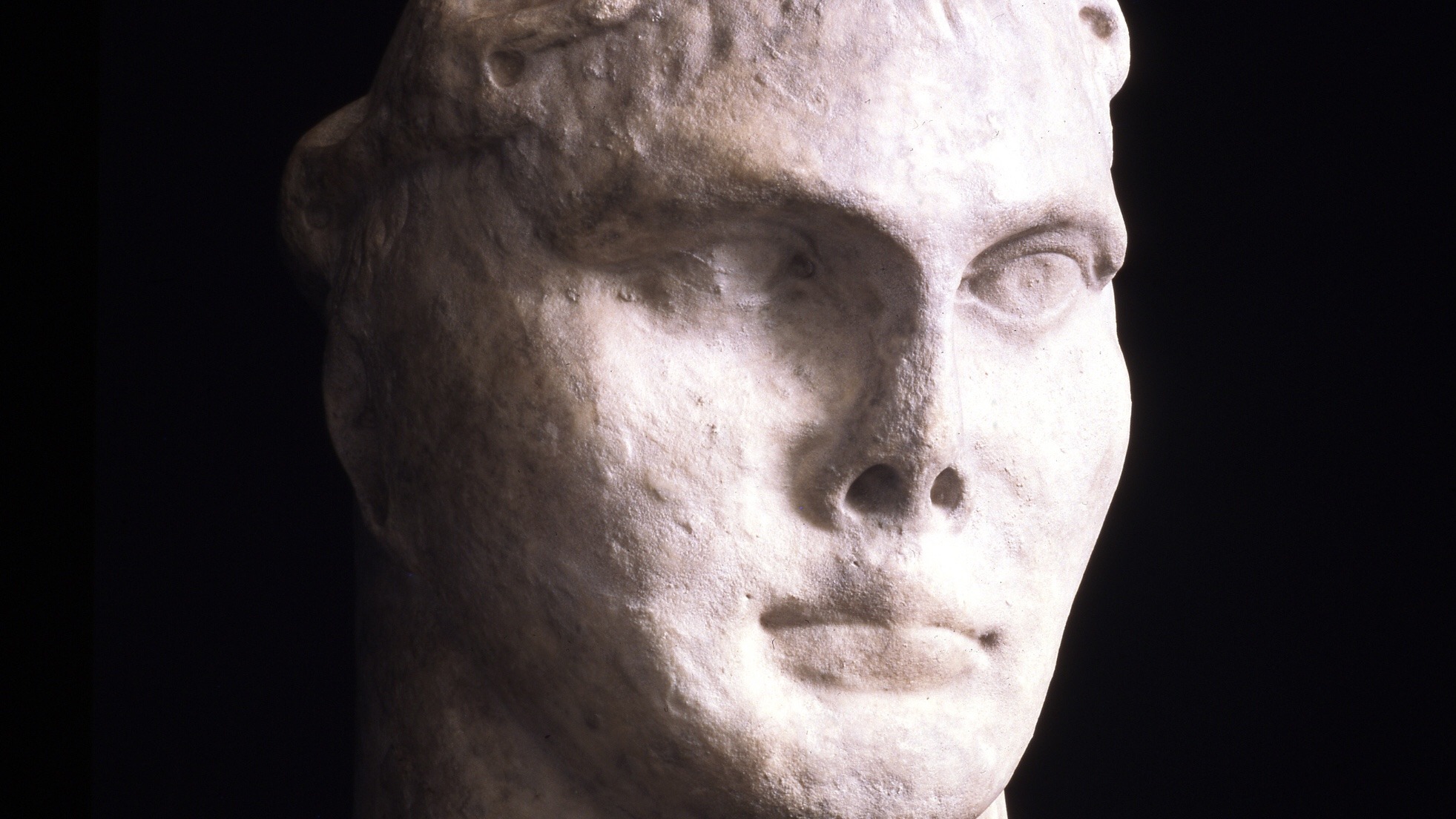 This myth is peculiarly intractable despite the fact that it is also peculiarly easy to refute. The claim is an anachronism. If we can find an instance of the Church referring to itself as “the Catholic Church” before Constantine lived, we can disprove the claim. And so we do. To mention just one place, we find it in Ignatius of Antioch. In his Letter to the Smyrnaeans, he writes: “Wherever the bishop shall appear, there let the multitude [of the people] also be; even as, wherever Jesus Christ is, there is the Catholic Church.” This letter was written around the year 110 A.D.
This myth is peculiarly intractable despite the fact that it is also peculiarly easy to refute. The claim is an anachronism. If we can find an instance of the Church referring to itself as “the Catholic Church” before Constantine lived, we can disprove the claim. And so we do. To mention just one place, we find it in Ignatius of Antioch. In his Letter to the Smyrnaeans, he writes: “Wherever the bishop shall appear, there let the multitude [of the people] also be; even as, wherever Jesus Christ is, there is the Catholic Church.” This letter was written around the year 110 A.D.  Now, I do Catholic apologetics myself, and I love reading Catholic apologetics, and Catholic apologetics helped to bring me into the Church. So I am not at all averse to a presentation of rational reasons for a position. When I was a kid, my mother used to defuse arguments by telling me that I should become a lawyer because I love to argue. But argument worked with me when I was in the process of converting to Catholicism because an argument in favor of the faith was what I was looking for. I had already opened my mind.
Now, I do Catholic apologetics myself, and I love reading Catholic apologetics, and Catholic apologetics helped to bring me into the Church. So I am not at all averse to a presentation of rational reasons for a position. When I was a kid, my mother used to defuse arguments by telling me that I should become a lawyer because I love to argue. But argument worked with me when I was in the process of converting to Catholicism because an argument in favor of the faith was what I was looking for. I had already opened my mind.